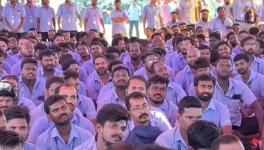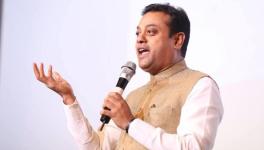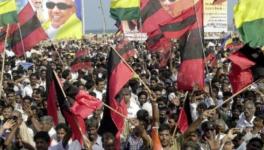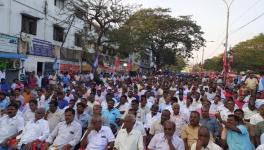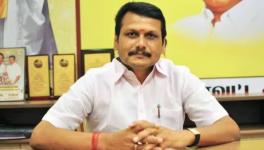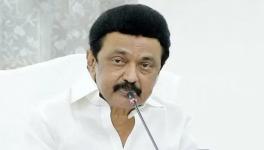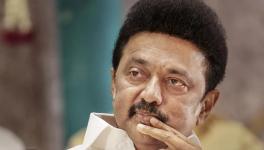TN: Journalists' Union Rejects State Govt's Decision to Form Separate Press Council
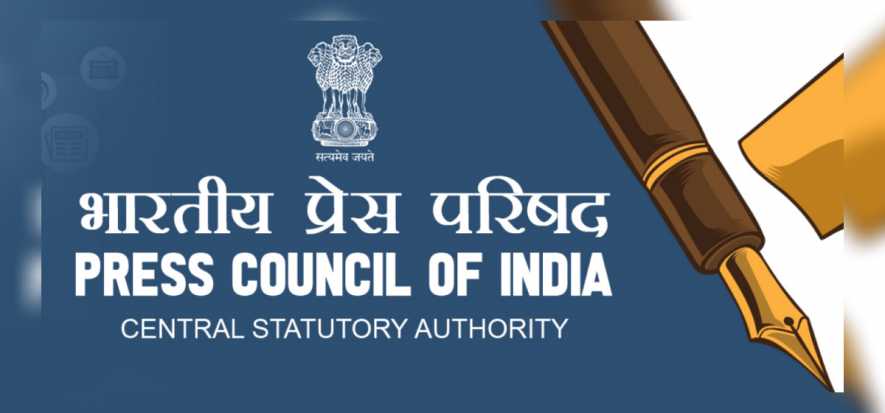
Image Courtesy: PCI Twitter
The Tamil Nadu Union of Journalists (TUJ) has outrightly rejected the formation of a separate Press Council of Tamil Nadu (PCTN), stating that it curtails the autonomy of the Welfare Board and the journalists' unions and thereby does not safeguard the interests of media persons.
Last week Tamil Nadu Chief Minister MK Stalin announced the formation of a Press Council after the Madras High Court directed the state to do so. The body would weed out 'fake journalists', regulate the distribution of identity and accreditation cards, give recognition to media bodies, and also receive complaints about the media.
There were doubts over whether the state had the provision to form such a body because newspapers, books and printing presses fall under the concurrent list. But the law department opined that the state could also pass a law to constitute a Press Council but should receive the President's assent due to repugnancy.
HOW IT CAME ABOUT
The Madras high court directed the state to form a Press Council while disposing two PIL petitions. One prayed for directions to investigate a report conveying fallacious data in idol theft, and the other prayed to investigate the economic offence piloted by a trust.
The petitioner claimed himself to be a journalist, and during litigation, the bench found that the petitioner could be a mouthpiece of those involved in idol theft cases.
The court observed that politicians, land sharks, smugglers and even murderers are seen to be hand in glove with these "mafia journalists".
A report in The Hindu observed, "In fact, the directives may constitute a remedy to the maladies highlighted by the Division Bench in its recent verdict, but it is quite surprising that such a far-reaching measure has sought to be created by judicial direction while disposing of public interest litigation somewhat unrelated to the case at hand."
ROLE OF PRESS COUNCIL
The Council shall have sole authority to recognise press clubs and journalists associations or unions in the state. It shall conduct elections to these clubs, unions and associations and be vested with the elected team of office bearers only after such approval by the board.
To curtail the menace of fake journalists, the Council shall have the power to identify such persons and lodge complaints against them to jurisdictional police.
The Council shall comprise representatives from the journalism industry and the government. All members shall be serving journalists of standing and government servants and shall be headed by a retired judge of the Supreme Court or High Court.
There was very little observation made for journalists' welfare and job security.
Only a few days before the TNPC was announced, a senior UNI journalist was found dead in his office in Chennai. He was under severe financial stress following delay and non-payment of salaries.
There are many instances of journalists being physically and verbally attacked, but nothing on the lines of redressal mechanism for such harassment was mentioned.
WHAT ABOUT THE WELFARE BOARD?
As promised by Dravida Munnetra Kazhagam (DMK) in its election manifesto, MP Saminathan, Minister for Information & Publicity, announced the formation of a Welfare Board for Journalists in the first Assembly session.
The minister made some orders regarding welfare grants and assistance for media persons. The family assistance in case editors, assistant editors, reporters, photographers and copy editors working in the field of journalism happened to die during their work period was increased from Rs 3 lakhs to Rs 5 lakhs.
The board would look into journalists' pay scales, raising journalists' family funds, group insurance for journalists, pensions, housing for journalists, etc. It would also negotiate conflicts arising between the press, the public and the police.
The board would consist of senior journalists, media house owners, government representatives, department of labour welfare and police representatives to explore and decide on various issues.
Now that a Press Council would be formed, the Tamil Nadu Union of Journalists opined that the board would be overlooked by the Council and would lose its autonomy.
TUJ CRITICISM
An issue relevant to the Tamil Nadu press accreditation committee persists with the Press Council. The committee acknowledges and provides accreditation cards only to print and television journalists who work for organisations. Freelancers and those associated with digital platforms are not given these passes.
Besides this, the TUJ observed no guarantee that the Council would recognise even the existing print and television journalists. Most of them are contract employees who are not paid full wages.
Thereby, TUJ leader Ravi said, "The Council will tell who is a journalist and who is not. The Council would benefit a very small percentage of senior and privileged journalists. None of the welfare benefits will reach the most needy media persons. It is those people who are on the ground, working on a contract basis and exploited who will need the benefits of the welfare board."
He added, "Only a few media houses that are able to submit yearly audits will be recognised by the Council. Small-time weekly local-area newspapers will not be recognised by this Council". What is the point of somebody sitting right on top deciding on such matters? How will a Supreme Court judge have knowledge about these things?"
He further said, "We are not sure if we can go on strike or hold a protest to voice our concerns. The Council will have a say about everything."
A senior leader of the Tamil Nadu Union of Journalists, Purushothaman, said, "We have been demanding a body to safeguard the interests of journalists for a long time. But, things have not turned out as we expected. The high court ruling could be counterproductive for us."
Maharashtra is the only state in India with a Press Council.
Get the latest reports & analysis with people's perspective on Protests, movements & deep analytical videos, discussions of the current affairs in your Telegram app. Subscribe to NewsClick's Telegram channel & get Real-Time updates on stories, as they get published on our website.









